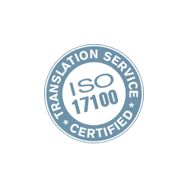Dutch and Flemish: What’s the difference?
Considering the overlap in mainstream definitions, it’s not surprising that many believe Dutch and Flemish to be one of the same – or rather that they refer only to a geographical difference.
However, while the two are remarkably similar in some ways, they feature various significant differences. When you’re dealing with native speakers of either Dutch or Flemish, translating into Dutch isn’t enough. If you want your communications to sound targeted, you’ve got to work in the dialect specific to your target audience.
Dutch [duhch]
The Germanic language of the Netherlands and northern Belgium.
The Dutch language as spoken in northern Belgium: one of the official languages of Belgium.
A comparison is often drawn between Dutch and Flemish and American English and British English, however, I don’t think this is entirely helpful as the divisions are generally larger and not typically interchangeable. For the purposes of this article, I will also ignore the question of whether Dutch and Flemish are, in fact, separate languages. This isn’t because I don’t think there is a debate to be had but because it simply won’t fit into a single blog.
Key differences between Dutch and Flemish
Pronunciation
The most obvious difference when talking with or listening to speakers of Dutch and Flemish is the pronunciation. Even to the untrained ear, the two dialects sound very different. While Flemish tends towards French pronunciations, Dutch in the Netherlands has more of an English feel.
For example, the word nationaal is pronounced nasional in Flanders and natzional in the Netherlands.
Vocabulary
While much of the Dutch lexicon is shared with Flemish, there are countless words that appear in one and not the other. For example, in the Netherlands my wife’s brother is my zwager. In Flanders he is my schoonbroer. In Amsterdam I have confituur on my toast. In Antwerp I have jam.
Yes, it’s easy to brush these off as regional peculiarities (and given my very limited pair of examples, that is perhaps fair) but the list of lexical differences is huge. There are thousands upon thousands of words which are not used in both dialects.
Additionally, unlike the varieties of English on either side of the Atlantic, Flemish and Dutch terms are often not interchangeable.
Formal Register
One of the more striking differences between Dutch and Flemish is the role of informal language. Over the years, the formal U (you) has fallen out of usage in the Netherlands to the point of extinction, leading most Dutch speakers to opt instead for the informal je (you) when speaking to strangers.
For Dutch speakers this is entirely normal because there just isn’t a formal option any longer. To Flemish speakers, however, using je in formal situations can sound impolite. Conversely, when Flemish speakers use U, it sounds old-fashioned to Dutch ears.
These three differences show, in a very brief and summary way, how very slight differences can combine to create two significantly different dialects. If you require Dutch or Flemish translation, don’t guess at which dialect to use. Get in touch with our team and we will set you on the right path.





